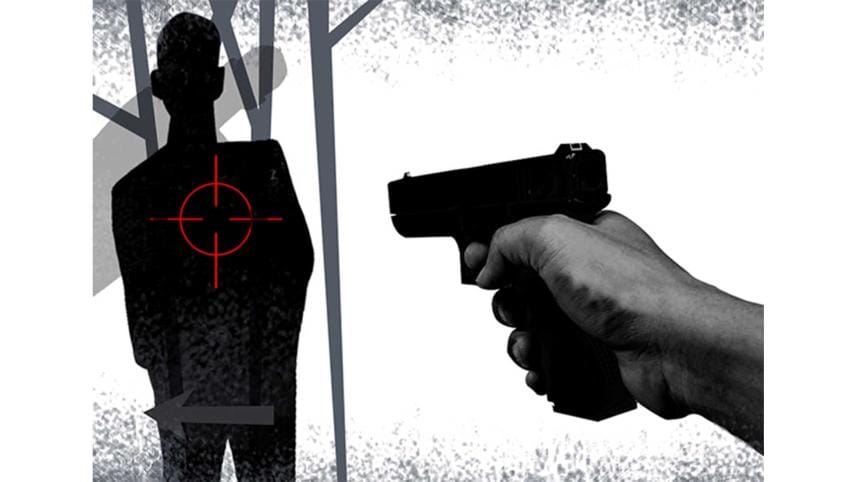The ‘crossfire’ controversy

The piece "No 'crossfire' deaths since US sanctions" published in this newspaper on January 11 will definitely engage all thinking minds, especially those entrusted with the maintenance of law and public order. It would appear from the report that human rights bodies are of the opinion that the so-called "crossfires" incidents happen due to establishment policy and strategy and that the same stop or decrease sharply after public outcry or condemnation of such mode of operation of the law enforcement agency. A serving official has said that a "crossfire" takes place when the situation so warrants and the increase or decrease of such engagement is dependent upon objective conditions, meaning that law enforcers resort to "crossfire" only in self-defence.
In view of the above diametrically opposite views on "crossfires", it is necessary in public interest to take a serious look into matters and understand the different ramifications.
Many consider "crossfires" to be extrajudicial murders that have been authoritatively encouraged. There is good reason to agree with such a view as so-called crossfires continued unabated during the democratic dispensation of 2001-2006. During the caretaker interval, there were comparatively fewer "crossfires". However, the return of democracy since early 2009 has not been able to put an effective stop to the suspected extrajudicial killings.
Under the circumstances, should citizens believe that lawless enforcement officials are in great demand when lawlessness and disorder prevail? Alternatively, is belief in the rule of law unnecessary? Don't we need to put sustained efforts into achieving substantial results in the long run? Why are we obsessed with "spectacular results" that are in fact illusory?
Eulogising or praising "crossfire" actions has created a worrying environment wherein result-oriented investigating officers are increasingly getting inclined to resort to short-cut methods to please political heavyweights. The worst aspect of this is the possibility that an alleged criminal or ordinary suspect may easily get caught up in a "crossfire" while ulterior motives are served.
Since most "crossfire" deaths are not seriously investigated to find proof of one's suspected culpability, the culprits in the enforcement and investigative apparatus achieve a macabre win-win situation. Elements of accountability and fear recede into the background and investigation becomes a pathetically low priority.
Professionally speaking, this is an instance of heightened jeopardy because, in Bangladesh, the crime-fighting machinery already stands accused of not cultivating a scientific modus operandi and quite often relapsing into untenable third-degree methods.
The question is: Do we want sustained labourious action under the law to strengthen our democratic foundation or do we need rash, desperate action without the cover of law?
The ultimate punishment for alleged "crossfires", the credibility of which many are not convinced of, appears as a summary response from desperate executives of law enforcement. The legality of actions leading to such an extreme apart, any responsible citizen might like to know if in our often overzealous anti-crime operations, we are just treating symptoms without venturing to study and assess the objective conditions promoting criminality.
We do not need sociologists and criminologists to tell us that present-day crime is a complex social phenomenon caused by a multiplicity of factors, and determining culpability is an extremely mind-exacting task.
Often, the fun-seeking delinquent of yesteryears turns into the uncontrollable don of the day due to the patronage of powerful quarters and the unexplained inaction of law enforcement. Therefore, when "crossfires" cause deaths, some myopic elements may be satisfied, but a civilised society—which wishes to live by the cannons of law—cannot but be concerned.
What we need is adequate provision for witness protection and victim support in the criminal justice administration, alongside hefty government funds. Any further delay in achieving this will only swell the ranks of summary justice seekers and admirers of vigilante action. The decapitating adversity of the victims of crime demands mainstream support from the system.
The rule of law and criminal jurisprudence may appear to be unequivocally in favour of offenders, criminals, and the law-breakers—but that does not automatically allow for resorting to illegal measures. A civilised government must strive to demonstrate that law enforcement effectiveness and civil liberties can co-exist in a society governed by the rule of law.
Muhammad Nurul Huda is a former IGP of Bangladesh Police.




 For all latest news, follow The Daily Star's Google News channel.
For all latest news, follow The Daily Star's Google News channel.
Comments